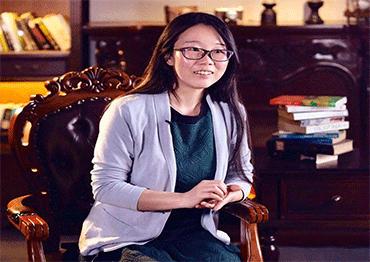While miniseries like The Queen’s Gambit (2020) and Squid Game (2021) are popular worldwide, the format is still emerging in China. Released in 2023, the acclaimed six-episode crime and suspense series Why Try to Change Me Now introduced more Chinese audiences to the miniseries format.
Adapting Li Juan’s plotless essay collection into a miniseries was a challenge for the production crew. “We were feeling the way as we went,” producer Qi Kang said.
Director Teng told NewsChina that every aspect of the project – from shooting to post-production – met feature film standards. This attention to detail stretched shoots to seven days per episode, an unusually slow pace in China, where it typically takes three days to film a TV episode.
To grasp the essence of Li Juan’s book and Kazakh culture, Teng made two fact-finding trips to Altay in 2020 and 2021.
Known for its rugged beauty, the region is considered the birthplace of skiing, evidenced by cave paintings of skiers dating thousands of years discovered in the area. But since Li’s time in Altay in the 2000s, when she left at 21 to find factory work in Xinjiang’s capital city of Urumqi, urbanization and technology have profoundly changed the region and its people.
Young Kazakhs, educated and city-dwelling, hesitate to return to the harsh nomadic life. Meanwhile, the older generation of herders, who live in yurts and migrate with their animals, is aging and traditions are disappearing – an issue many ethnicities face worldwide.
Teng was deeply impressed by the hospitality. She noted that meeting one Kazakh often led to warm introductions to many others. Unlike in urban areas where connections are more transactional, interactions on the grassland are depicted as pure and simple.
In one scene, Li Wenxiu’s mother, Zhang Fengxia, tries to buy a sheep from a local herder. After a day of bargaining, they fail to agree on a price. Despite this, the herder hosts her that night with a feast, using the very sheep Zhang wanted to buy.
Alima Mayutian, who plays Batai’s sister-in-law Tuoken, is a Kazakh woman from Altay. She told NewsChina that this scene captures the essence of Kazakh hospitality. “As the saying goes, about half of the property of every Kazakh family belongs to guests,” Mayutian said.
To authentically present the culture, nearly 50 percent of the dialogue is in Kazakh. Actor Yu Shi, who plays Batai, spent six months learning the language.
Upon its release on May 7, the show quickly garnered acclaim from audiences and critics. It topped the ratings on CCTV-1, the flagship channel of State-run China Central Television, with a 1.96 percent viewership for its time slot, and was the most talked-about show on the streaming site iQiyi in May.
By July 2, the hashtag “To the Wonder” had 4.87 billion views on Douyin. More than 249,000 users of Douban, China’s leading media review site, gave the show an 8.9/10 rating, an exceptionally high score for a domestic production. It was also selected for the Long Form Competition at the 2024 Cannes International Series Festival.
Filmmaker Zhang Dalei, known for his award-winning feature The Summer is Gone (2016) and director of miniseries Why Try to Change Me Now, is a self-proclaimed fan of To the Wonder.
“I love the show and was deeply touched by it. I can feel the creators’ sincerity and kindness,” Zhang said.
According to Zhang, creators’ sincerity is the most crucial factor behind a film or TV work’s success. “Audiences can tell if a work is sincere. They can tolerate a sincere director’s lack of skill, but not the other way around,” he told our reporter.

 Old Version
Old Version



